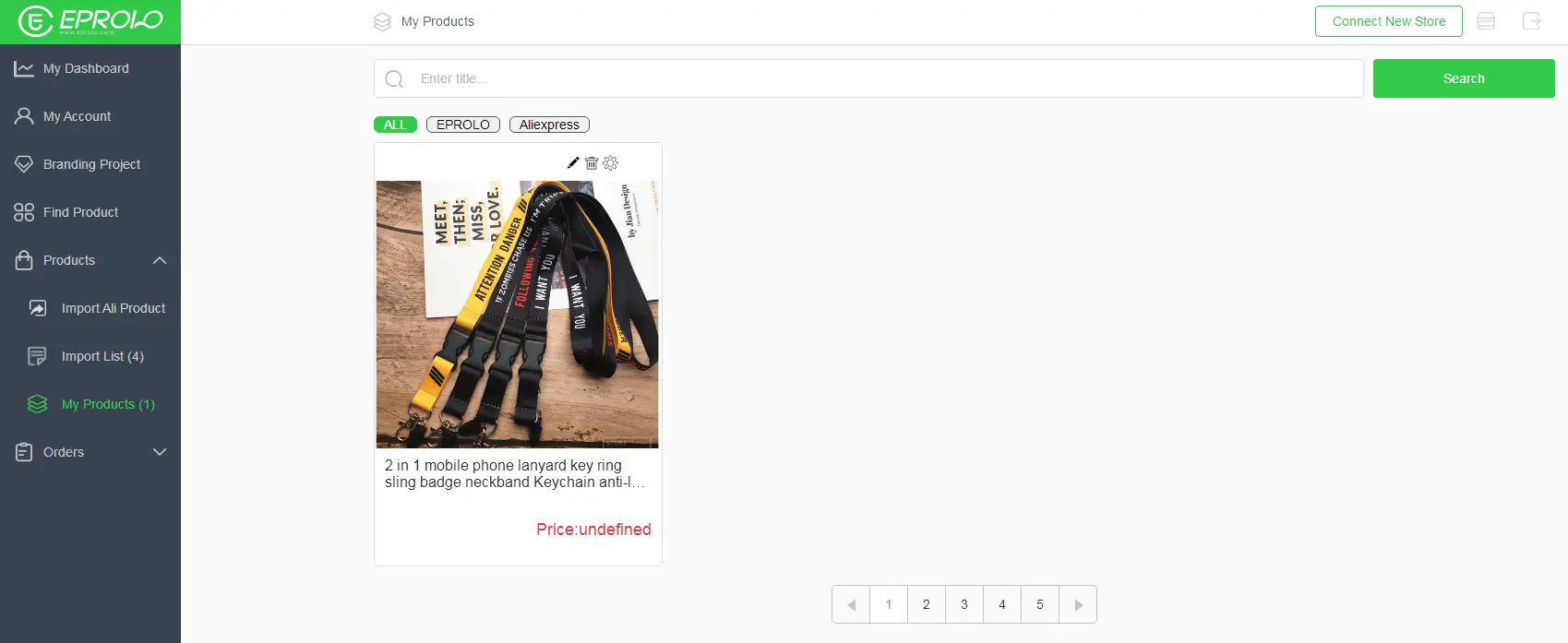Alternatives to Dropship.io
1. AutoDS
+Pros
- Multi-channel integration breadth supporting Shopify, eBay, TikTok, and WooCommerce with automated order processing capabilities.
- Supplier diversification capabilities providing access to 25+ suppliers including Amazon and Walmart, reducing single-source dependency risks.
- Documented performance evidence includes 42% fulfillment time reduction and 28% increase in repeat orders within three months through systematic implementation.
-Cons
- Implementation complexity creates significant barriers, particularly for WooCommerce integrations requiring technical expertise compared to streamlined Shopify setup.
- AI pricing algorithm limitations emerge during supply chain disruptions, where algorithmic responses lack contextual awareness and may trigger margin erosion without proper oversight protocols.
- Minimum viable scale requirements include 200+ SKUs for basic functionality, making the platform potentially over-engineered for smaller operations.
One highlighted feature and why it's amazing
Core automation capabilities center on multi-channel order processing across Shopify, eBay, TikTok, and WooCommerce platforms.

Another highlighted feature of why it’s amazing
The AutoDS Finder feature analyzes market trends to identify potential products.
2. DSers

3. Eprolo
+Pros
- Integrated AI sourcing with branded fulfillment services .
- Print-on-demand capabilities for over 1,500 products without minimum order quantities .
- Multi-region fulfillment infrastructure spanning US, EU, and Asian markets .
-Cons
- Approximately 12% of users report shipment delays from misaligned inventory data .
- Limited market share among SMB-focused dropshipping tools compared to established players like Spocket .
One highlighted feature and why it's amazing
Image-based and keyword-driven product sourcing that analyzes market trends to recommend high-demand items .

Another highlighted feature of why it’s amazing
Seamless integration with major ecommerce platforms including Shopify and WooCommerce, automatically syncing orders, processing payments, and triggering fulfillment without manual intervention .
Other Alternatives
Modalyst
Printful
Sell The Trend
Spocket
Zendrop
How We Researched This Guide
About This Guide: This comprehensive analysis is based on extensive competitive intelligence and real-world implementation data from leading AI vendors. StayModern updates this guide quarterly to reflect market developments and vendor performance changes.
206+ verified sources per analysis including official documentation, customer reviews, analyst reports, and industry publications.
- • Vendor documentation & whitepapers
- • Customer testimonials & case studies
- • Third-party analyst assessments
- • Industry benchmarking reports
Standardized assessment framework across 8 key dimensions for objective comparison.
- • Technology capabilities & architecture
- • Market position & customer evidence
- • Implementation experience & support
- • Pricing value & competitive position
Research is refreshed every 90 days to capture market changes and new vendor capabilities.
- • New product releases & features
- • Market positioning changes
- • Customer feedback integration
- • Competitive landscape shifts
Every claim is source-linked with direct citations to original materials for verification.
- • Clickable citation links
- • Original source attribution
- • Date stamps for currency
- • Quality score validation
Analysis follows systematic research protocols with consistent evaluation frameworks.
- • Standardized assessment criteria
- • Multi-source verification process
- • Consistent evaluation methodology
- • Quality assurance protocols
Buyer-focused analysis with transparent methodology and factual accuracy commitment.
- • Objective comparative analysis
- • Transparent research methodology
- • Factual accuracy commitment
- • Continuous quality improvement
Quality Commitment: If you find any inaccuracies in our analysis on this page, please contact us at research@staymodern.ai. We're committed to maintaining the highest standards of research integrity and will investigate and correct any issues promptly.